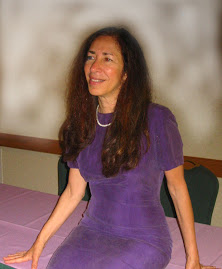Here where I live, on the island of Kauai, we have coaches and counselors and Reiki Masters and craniosacral therapists and Deeksha givers and channelers in abundance, as well as practitioners of every other possible healing modality you can imagine. Although many of my local clients have sampled generously from this extensive smorgasbord of therapies, trying one treatment approach after another, they still suffer terribly from problems that won’t clear. They still need help getting over anxiety, they still need help for low self-esteem, they still need help with trauma recovery, they still need help moving on.
These people are sincere, and they are motivated. They really want to change. They are trying so hard, paying so much money to all the practitioners they see, dedicating so much time to healing, and still, they have an issue that just doesn’t budge. They may get some relief from the various treatments they undergo, and that is most welcome, but the core problem still lingers so they try another practitioner, another method, or they read another book, and then another, and another.
But it isn’t just my clients in this boat. In fact, most of us have at least one problem or challenge that won’t disappear. Why is it that these issues just won’t go away no matter what we do, who we see, how much we pray, how hard we try? Why don’t the healing modalities ultimately deliver on the promise of transforming the agony, erasing the distress, changing the habits or addictions or beliefs or circumstances?
I believe it’s because most healing methods—including alternative methods--deal with symptoms, rather than root causes. Just as practitioners of Western medicine tend to give pills and prescriptions to alleviate patient ailments while failing to examine what caused the ailment in the first place, alternative healing, too, often focuses on alleviating the manifestation of distress—the anxiety, the headache, the insomnia, the depression, the addiction, the low-self-esteem, the fight with the spouse or the job now lost. When the manifestation of distress lessens—the insomnia stops, for instance--the client feels better for a while, but then the problem comes back because the root cause was never eradicated.
On the other hand, sometimes the healing method focuses on the antidote to the problem—the visualization, the affirmation, the meditation, the placing of hands or needles or the tapping on the right spot, finding the right crystal, taking the right supplement, gazing upon the right Master. Again, this approach can offer some wonderful relief, but ultimately the problem resurfaces because the root cause still lives.
You may think you’ve addressed the root cause, but if the problem persists—you probably haven’t, not really. And there always is a root cause, or maybe several root causes, whenever a problem won’t go away. That root cause may be buried ten layers down from where you think the root cause resides. So you work on what you suppose is the root cause, and still you have the problem. You probably just haven’t gone deep enough yet.
A huge part of healing involves discovering what’s way underneath the surface of your problem. And very often, the thing that’s at the root of the root is some misguided belief. Even more central than the trauma that originally caused your distress may be some distorted belief that the trauma spawned. And the thing about the belief is that it’s invisible to you. It’s so deep, so much a part of your consciousness, that you can’t even see it. So, for instance, you might think the root of your problem is your father’s cruelty. You might remember a particularly traumatic episode with your father, and you assume this is where your anxiety stems from. Maybe your therapist agrees. You work on reducing the stress associated with that memory, on disrupting the energy field associated with that memory, but still you have the anxiety. That’s because beneath that memory is buried your belief--which was born at the time of the original incident—your belief that you are shameful and inadequate.
No matter how much trauma-clearing you do, you won’t eradicate the distress as long as your misguided beliefs persist. These beliefs can cause inordinate fear, shame, anger, pain. They can make you feel that you are hopeless, helpless, shameful. They can totally sabotage your healing.
So you have to be willing to do the work, the real work, of drilling down deep to see what belief resides behind the manifestation of your problem. No matter how many massages you get, how many times you tap your acupressure points, no matter how many affirmations you chant—you won’t heal until you get beyond the symptoms. If you still aren’t healing, you need to be very brave and very persistent, asking yourself over and over, “And what belief is behind this? And behind that? And then, behind that?”
To heal your stubborn issues, use any method of self-inquiry that works for you. This can be difficult to do without help, so if you don’t have success healing yourself, reach out! I suggest you find a professional who works with uncovering distorted beliefs and can offer a method like Tapas Acupressure technique or another energy healing modality that disrupts old patterns of belief and allows you to invite healing energy in to establish new beliefs.
Blessings, Hiyaguha, The Life-Change Coach
Dr. Hiyaguha Cohen is a Ph.D. life coach certified in Tapas Acupressure Technique. She works with clients by telephone, Skype, and sees Hawaii counseling clients in person.









